- Overview
- Signs & Symptoms
- Tests & Procedures
- Lung Diseases
- Pneumonia
- Bronchitis & Bronchiolitis
- Respiratory Syncytial Virus (RSV)
- Tuberculosis (TB)
- Nontuberculous Mycobacterial (NTM) Lung Disease
- Other Respiratory Infections
- Interstitial Lung Diseases & Fibrosis
- Hypersensitivity Pneumonitis & Related
- Lung Tumors & Nodules
- Pulmonary Hypertension
- Pleural Conditions
- Other Lung Conditions
- Environmental Impacts on Lung Health
- Therapies & Management
- View Full Guide
Why Some Adults Are More at Risk From RSV

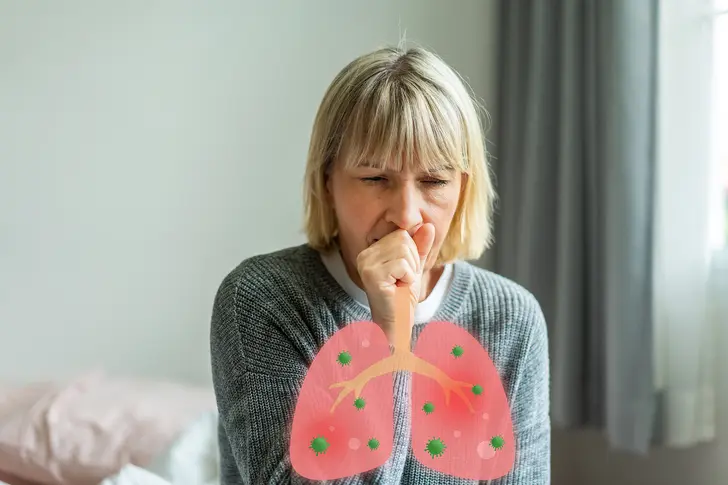
What Is RSV?
RSV is a virus that infects the respiratory tract. In healthy people, it often causes symptoms similar to the common cold. It can be more severe in infants and seniors.
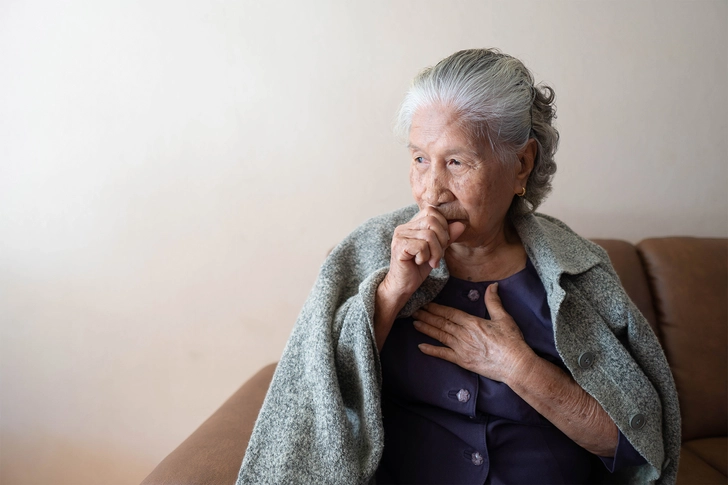
How RSV Spreads?
RSV spreads through droplets from an infected person’s coughs or sneezes. You can also become infected by touching surfaces contaminated with the virus.
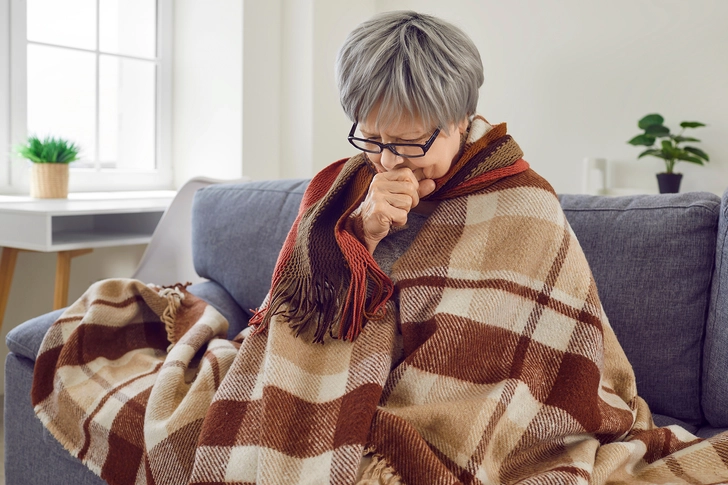
Increased Risk for Seniors
Older adults are more susceptible to RSV due to weaker immune systems. This makes it harder for them to fight the virus, increasing the risk of severe complications.
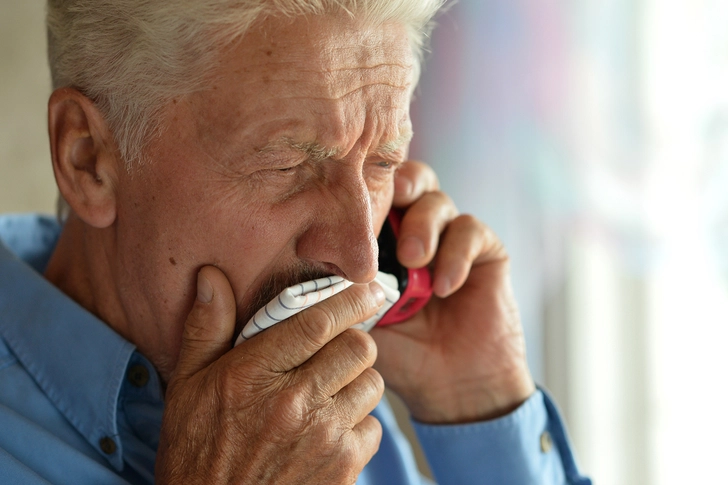
Chronic Conditions and RSV
People with chronic conditions such as diabetes, heart disease, and chronic obstructive pulmonary disease (COPD) are at higher risk of severe complications from RSV.
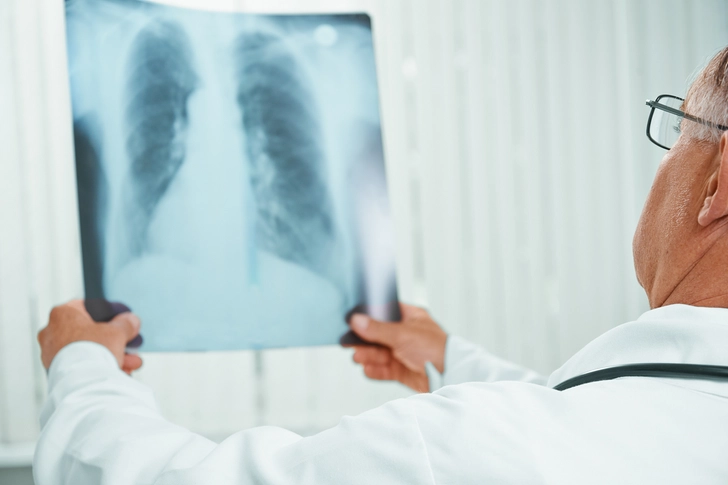
Complications of RSV
They may develop pneumonia or bronchiolitis, which is when the small airways that lead to your lungs get inflamed.
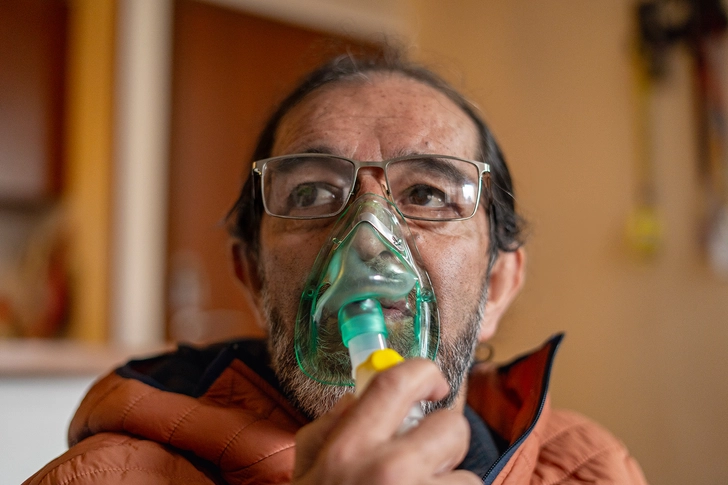
Symptoms of Severe RSV
If you have RSV and you can't breathe well or you're dehydrated, you may need to go to the hospital. You may need IV fluids, oxygen, or ventilation (which helps with air flow).

The RSV Vaccine
RSV vaccination is now recommended for everyone ages 75 and older. People ages 60 to 74 who are at higher risk for severe disease due to RSV should also get vaccinated. Clinical trial results have suggested vaccination could reduce the risk of severe RSV complications by up to 94%.
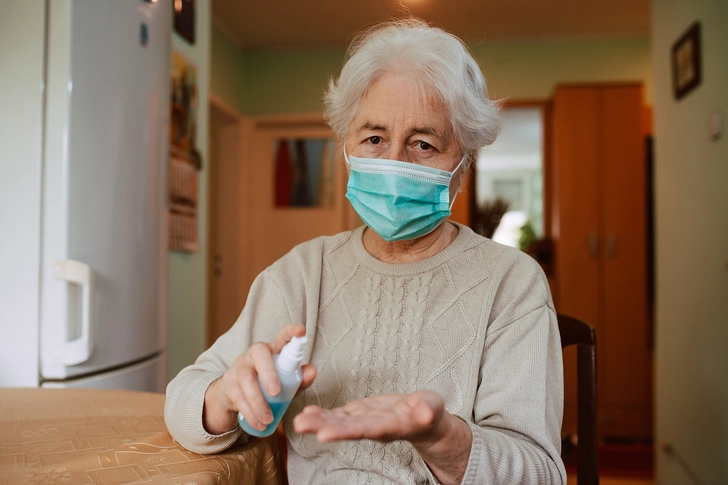
Preventing RSV
You can help prevent RSV by washing your hands regularly, using hand sanitizer, avoiding close contact with sick people, and cleaning frequently touched surfaces. Get the RSV vaccine if you're eligible.
Photo Credits:
1) Art_Photo/Shutterstock
2) Orawan Pattarawimonchai/Shutterstock
3) Studio Romantic/Shutterstock
4) Ruslan Huzau/Shutterstock
5) Duet PandG/Shutterstock
6) E+/Getty Images
7) E+/Getty Images
8) StrDr stock/Shutterstock
SOURCES:
American Lung Association: “Learn About Respiratory Syncytial Virus (RSV).”
CDC: “RSV in Older Adults and Adults with Chronic Medical Conditions.”
Drugs and Aging: “Respiratory syncytial virus infection in elderly adults.”
Mayo Clinic: “Respiratory Syncytial Virus (RSV).”
National Foundation for Infectious Diseases: “Respiratory Syncytial Virus (RSV),” “Respiratory Syncytial Virus in Older Adults: A Hidden Annual Epidemic.”
National Library of Medicine: “Respiratory Syncytial Virus Infections.”
American Academy of Pediatrics: "RSV: When It's More Than Just a Cold."
American Lung Association: "RSV Symptoms and Diagnosis."
CDC: "Older adults are at high risk for severe RSV infection," "Respiratory Syncytial Virus (RSV)," "Respiratory Syncytial Virus Infection (RSV)," "RSV in Older Adults and Adults with Chronic Medical Conditions," "RSV Prevention," "RSV Transmission," "Symptoms and Care," "When and How to Clean and Disinfect Your Home."
WebMD "CDC Revises RSV Vaccine Guidelines Over Side Effect Concerns"
Children's Hospital Colorado: "Differences Between COVID-19, RSV, Flu and Other Bugs Affecting Kids."
Children's National: "What virus do I have?"
Jay Varma, MD, director, Weill Cornell Center for Pandemic Prevention and Response.
Kaiser Health News: "KHN Morning Briefing."
Kunjana Mavunda, MD, pediatric pulmonologist, Miami.
Mayo Clinic: "Respiratory syncytial virus (RSV)."
Oakland County, Michigan: "Respiratory Syncytial Virus (RSV)."
Therapeutic Advances in Infectious Disease: "Respiratory syncytial virus: Diagnosis, prevention, and management."
University of Iowa Stead Family Children's Hospital: "Closing in on a vaccine for RSV."
World Health Organization: "Respiratory Syncytial Virus (RSV) Disease."